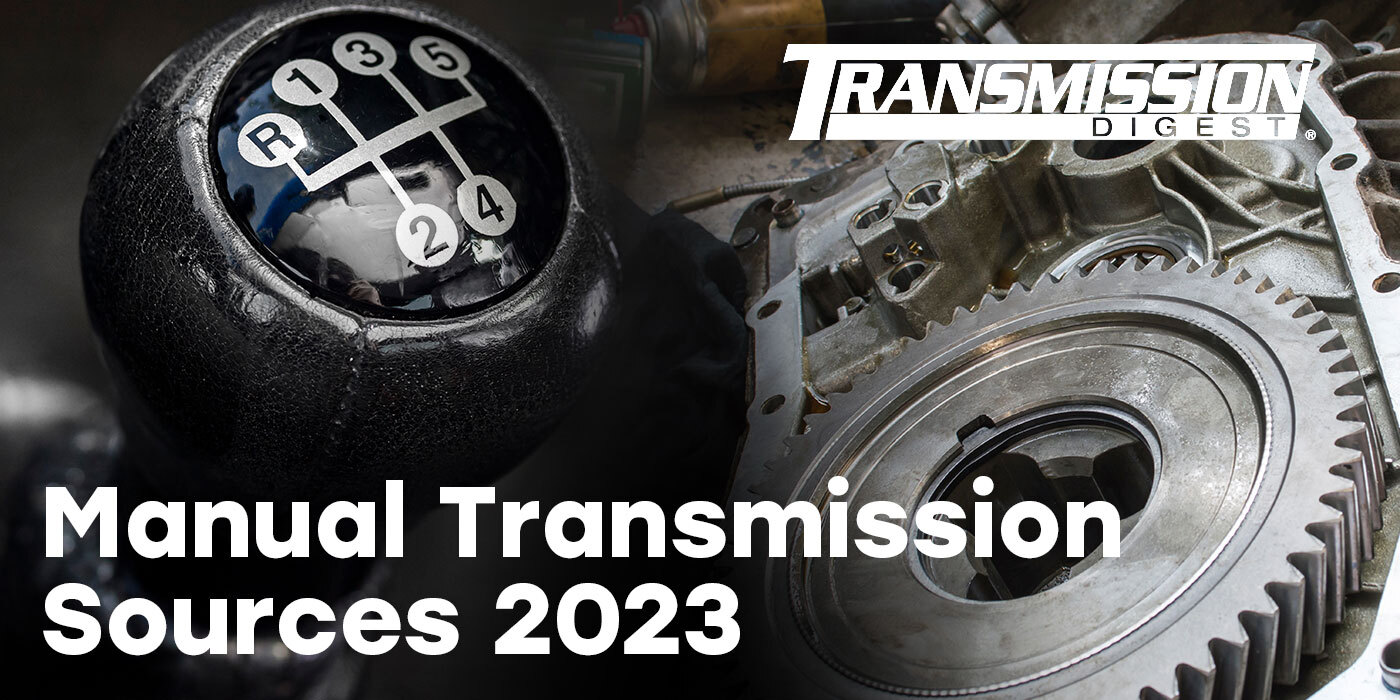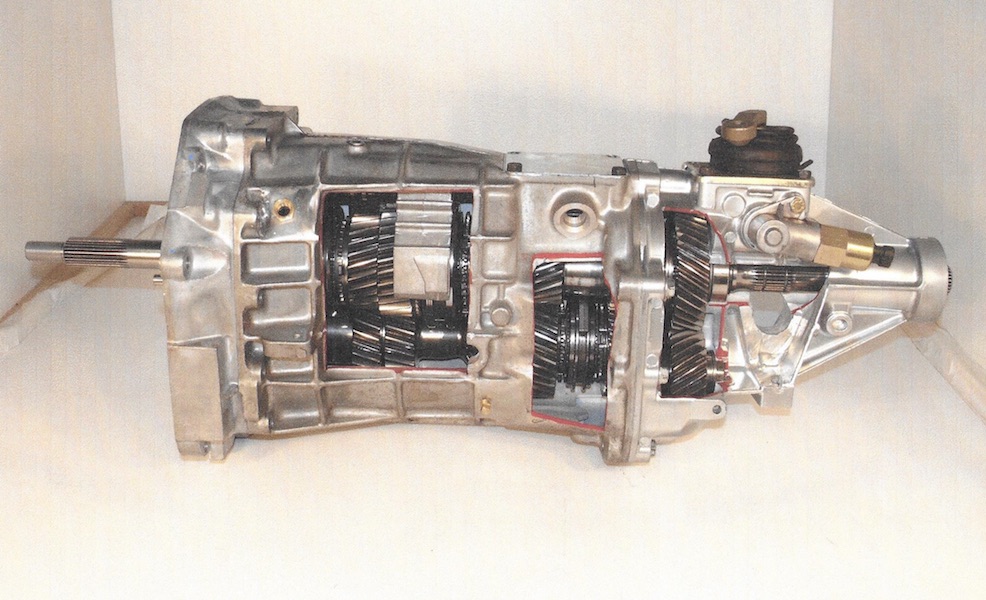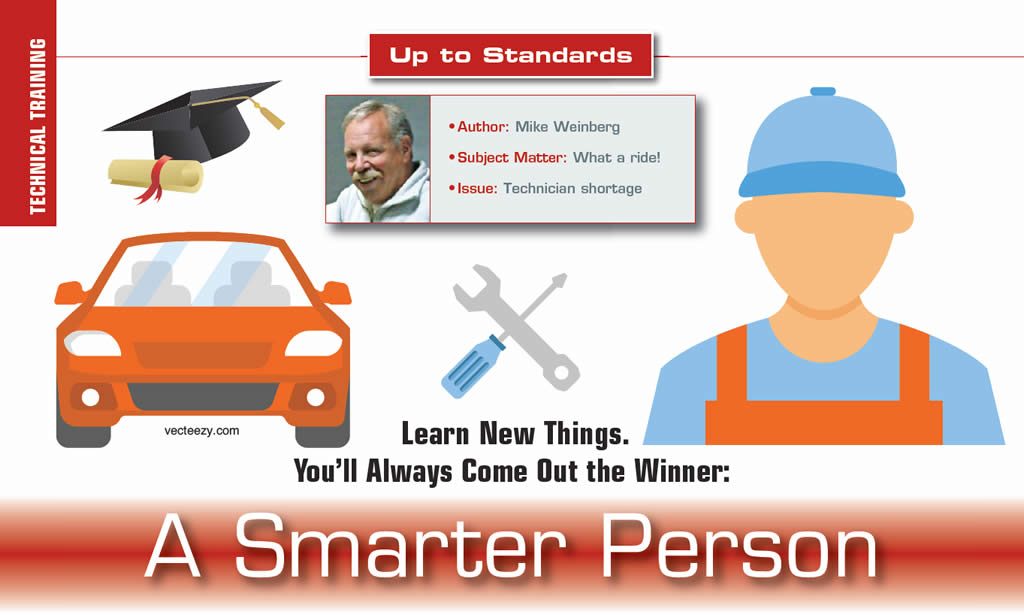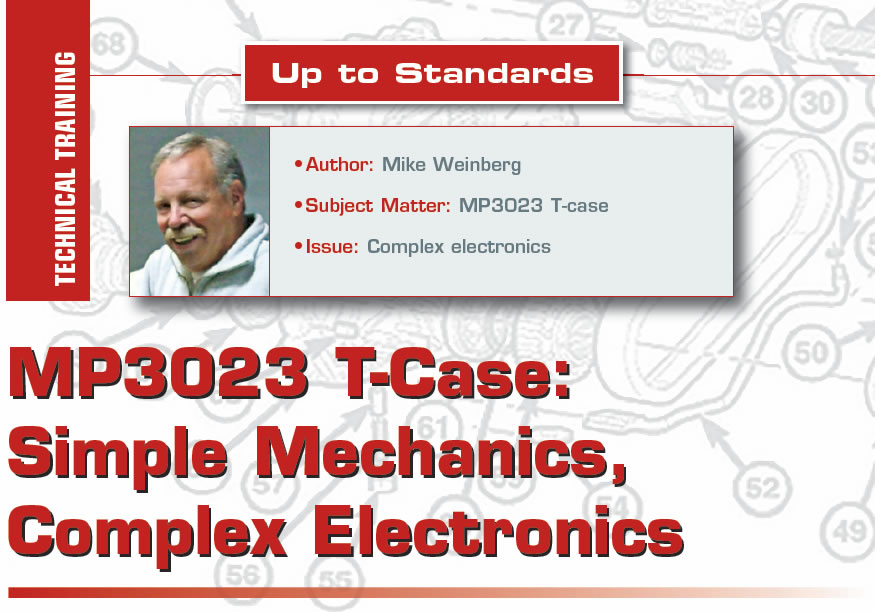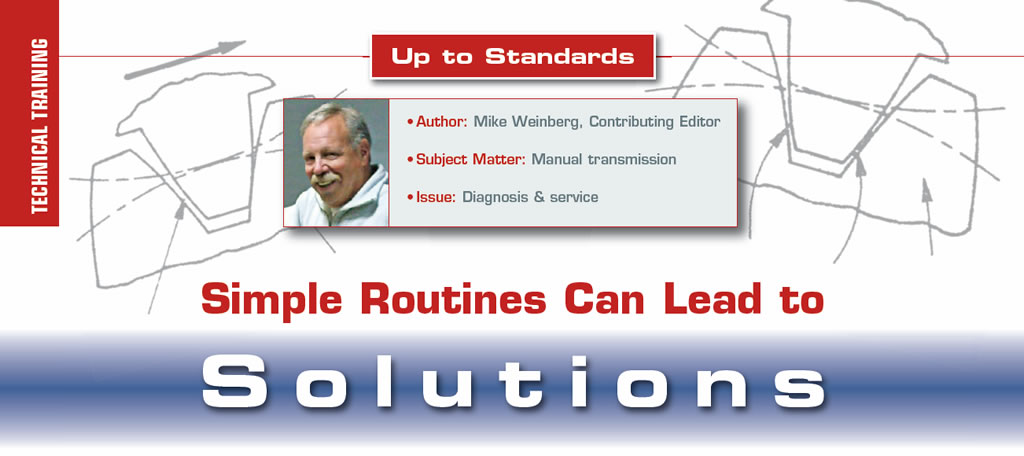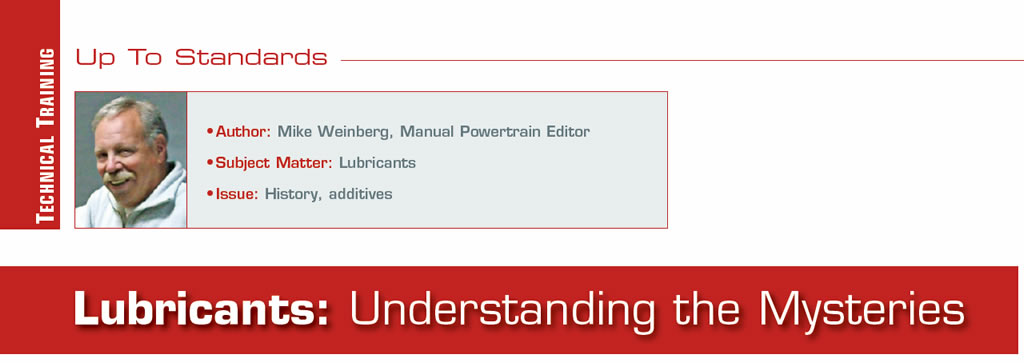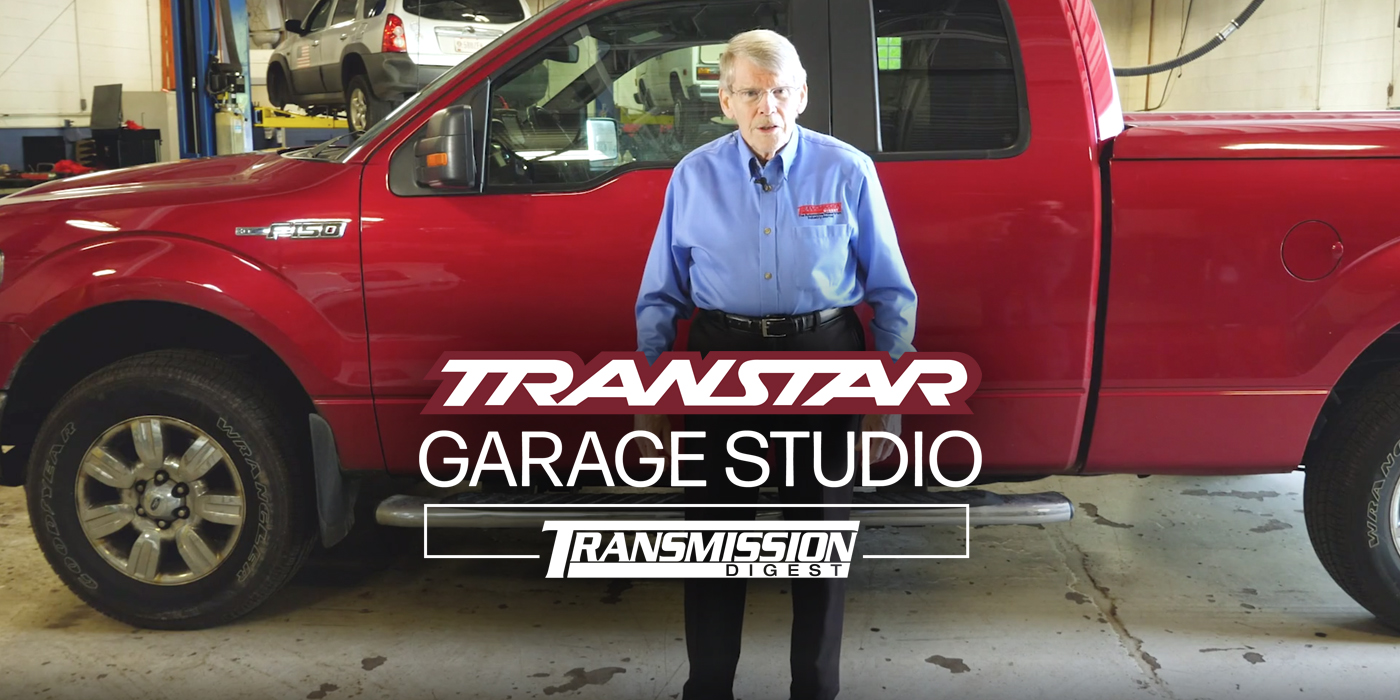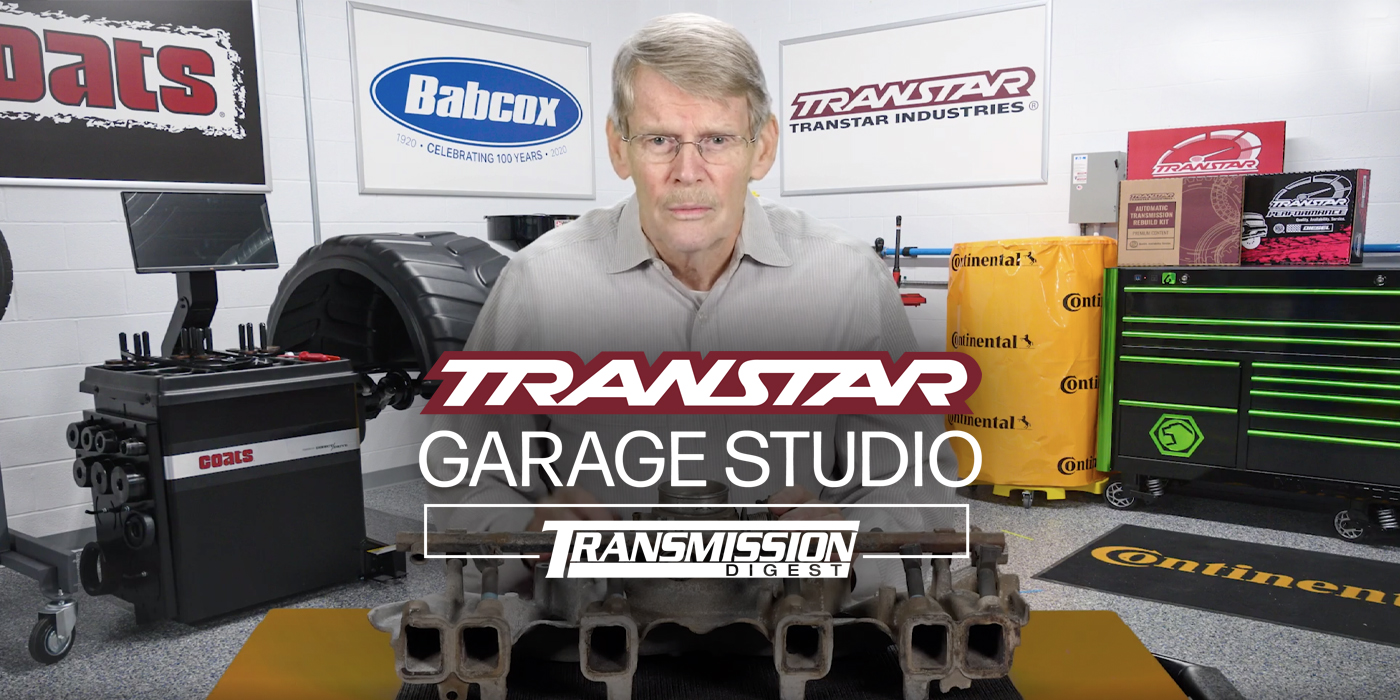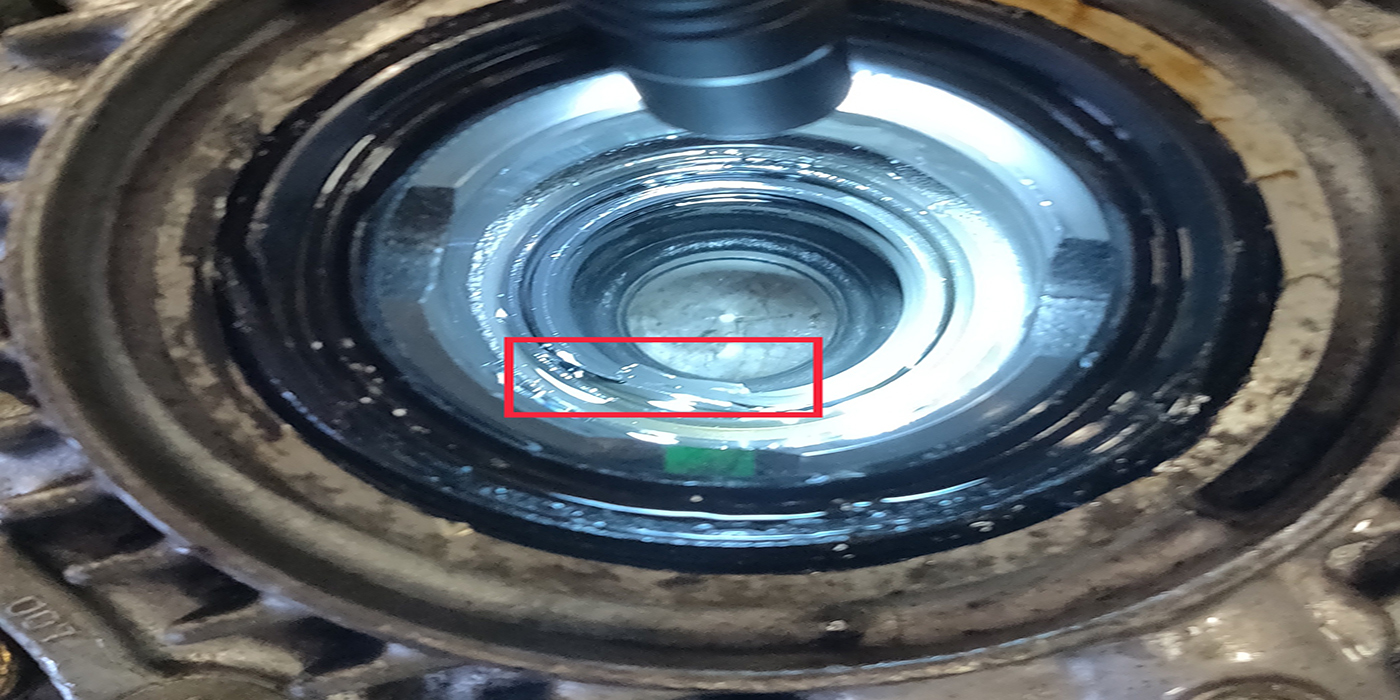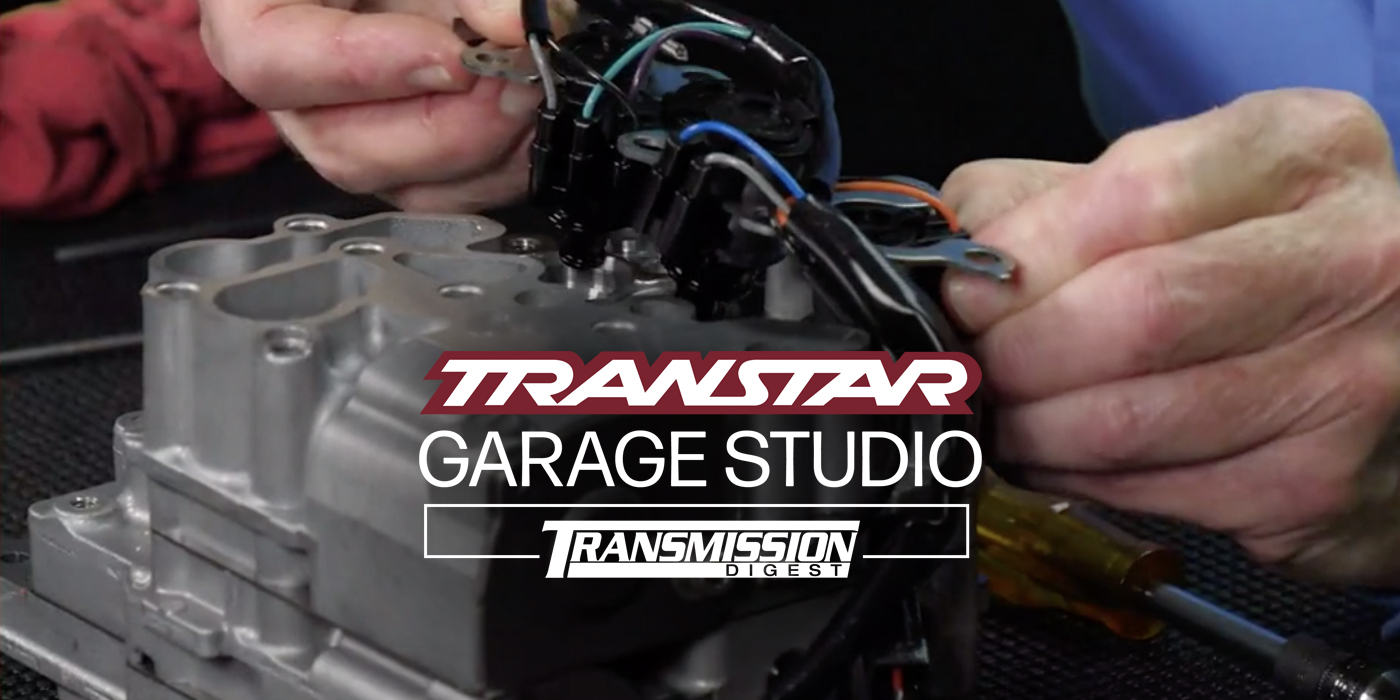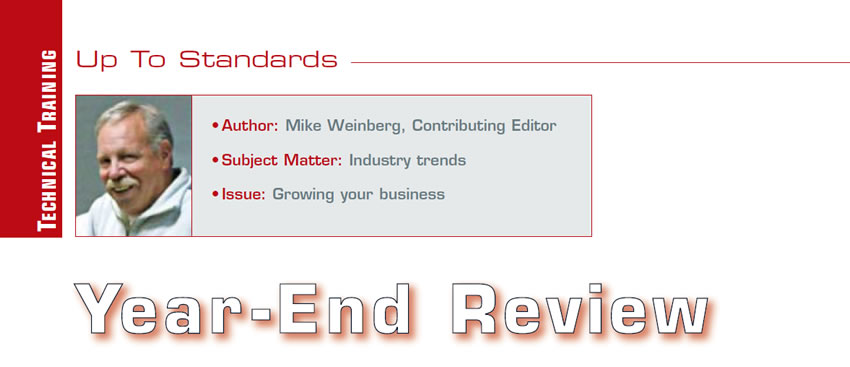
Up to Standards
- Author: Mike Weinberg, Contributing Editor
- Subject Matter: Industry trends
- Issue: Growing your business
Another year has flown by, and it has left me with more questions than answers. Business is slowly increasing for us, but it seems that many shops in our industry are struggling to survive. This means that the transmission repair industry is still contracting, with many shops pulling the plug and others doing general repair to bring in cash flow – and general-repair shops now buying reman units and replacing transmissions.
When you see major transmission franchise players advertising repairs on A/C, brakes and exhaust, it is obvious that the distinctions between specialty shops and general repair have really blurred the lines in pursuit of cash flow. This is a natural side effect of the current marketplace, which has been altered considerably by the present quality of new vehicles, which are built to amazing quality standards. The norm now is 200,000 miles instead of the old 100,000-mile expectancy.
Make no mistake; this is by design from the auto manufacturers. This is not an evil conspiracy to eliminate the aftermarket; it is just bare knuckle capitalism at work. They are building a great product mechanically. They have very long warranty periods, which means that it will be five years or 50,000 miles before the consumer will pay us to fix what is worn or broken. There are any number of lease deals available throughout the field that can put you in the driver’s seat of a new, under-warranty vehicle for very low dollars monthly.
Every dealer can sell his customer a factory-reman unit for most major components on the vehicle. The dealer is now being very competitive on parts pricing, and there seems to be little price consideration for the professional shop against what they will quote your customer. On the factory side, parts that they buy from Tier 1 suppliers are contracted to be “captive” to the automaker dealer body only. The supplier to the automaker cannot sell to the aftermarket any product that was built on tooling paid for by the automaker.
Technology is advancing so rapidly that it takes another 40 hours a week of reading and learning to stay current. The variety of designs particularly on automatics is breath taking. Five-, six-, seven-, eight-, even nine-speed transmissions are either in the cars or on their way. With the advent of social media and Bluetooth, the cars can communicate to the driver and even make service appointments for “free years of preventive maintenance.” We know it is not free, but built into the purchase price or lease deal, yet the customer no longer goes to the quick-lube for service, because the dealer will do it for “free.”
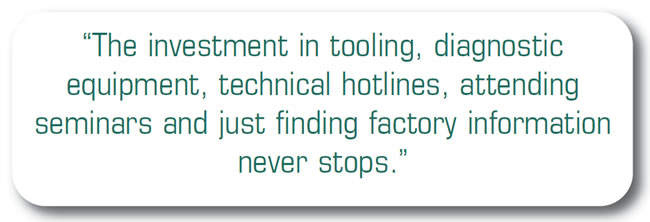
The investment in tooling, diagnostic equipment, technical hotlines, attending seminars and just finding factory information never stops. They bring out a continuously variable transmission but the dealer doesn’t sell parts, so your only option is to buy an expensive replacement unit to get the car back on the road or buy a good used one with a decent warranty from a salvage yard.
This is not an exercise to bring on depression and make you feel hopeless, but rather a wake-up call to begin to think how this marketplace really is and how to survive and prosper in it. I know, we are little guys who have this giant “predator” going after everything we were used to. Do you fold up or do you innovate and overcome?
My transmission shop took in a popular small car with a bad CVT. The dealer wanted a price for the reman unit that sounded like a telephone number. We did not accept no for an answer when they said, “No service parts are available.” We checked in Europe, located a source for factory parts at a reasonable price and had them shipped in, made the repair and saved the customer thousands of dollars while making a nice profit. We can now repair these units that the dealer can’t fix, and the word gets around.
Every roadblock can become a path to profit if you see that the field is wide open. Every problem also presents opportunity. Do you want to fish in a pond with a thousand other guys, or do you want to climb the next hill and find a pond that no one has fished? The only thing here to be decided is how badly you want it.
Recently I got a letter from a lady who owns a “mom-and-pop” transmission shop and was very upset at transmission-parts suppliers and some technical-service providers for supporting general-repair shops by selling them parts and technical info. She then appeared in an article in which she said her shop is now doing general-repair work to increase its business. Apparently she has started a group to combat the forces that are in competition with the mom-and-pop shops.
One of the ways we will continue to lose more shops is to have an internal civil war and lose sight of our objective, which must be market share. The bottom line is to increase sales and grow your business. We already know that our competition is coming from the government, the automobile manufacturer and the salvage yard. You didn’t think the government was your competitor? It owns a piece of GM and Chrysler, and it regulates everything under the sun. It tells you how you have to work, how much you have to pay your employees, which chemicals you can use, and it grants you the permits to open a business and tells you what your health-care plan is going to be.
All this regulation puts you at a steep economic disadvantage to the guys who don’t play by the rules and don’t care if they get caught. Henry Ford, who was one of the greatest industrialists to walk the earth, said, “If you think the government will help and take care of you, you only have to look to the American Indian to see how well that worked out for them.” This is not a conspiracy against our industry, but it is an evolution that will make the average shop extinct if it doesn’t adapt.
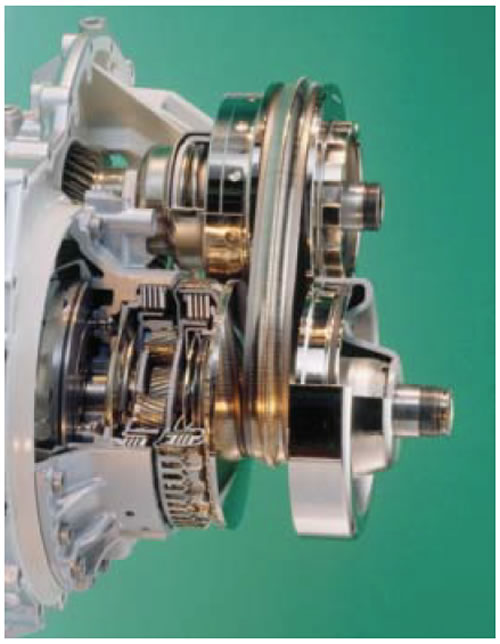
2014 is around the corner, and it will bring more of the same. Those who research the products that people need but cannot find will prosper; those who do not change and choose to carry on in the same way will fail. You need to do research on what is in demand in your area and find out how to fill that demand. It won’t be easy, but nothing good ever is. The hardest work to do is thinking, which can be exhausting, which is why so few people use their brains.
Find the answers for new business that isn’t overcrowded. Make the investment in education, tooling and locating parts supply for the new product. Profit comes easier if you are the only game in town. Price is not important unless it is a common commodity that everyone has. Bargain parts prices save some money, but they come with downsides. Do you deal with a parts supplier that has a technical ability to help you when it doesn’t work? Did the few bucks you saved on the part create a comeback because of the lower quality? After the second time the unit is on the ground, I bet the cheap price is no longer cheap.
Make the investment in tooling for diagnostics and computer reflashing and for other essential tools that by their nature cut your labor costs. Part of that investment is on education. Buying the factory access to the service manuals, attending technical seminars and plain old research will make you money. There is no way that you cannot quadruple your investment in a seminar just by paying attention and reading the handout material.
Most of you are not old enough to remember when there were no such things as rebuild kits and if you were rebuilding a transmission you had to buy each part from the dealer. This obviously was a major obstacle to growth, but smart, innovative men sourced the parts and began creating kits. This one-stop shopping created a giant industry that we now take for granted. We are now at a turning point where the manufacturer wants to keep all the business and consolidate the amount of parts it has to warehouse. This is good business on the manufacturer’s end, even though it makes them more competitive.
Most of your parts suppliers spend every waking minute to source the parts that we need to complete a job. It is difficult to find quality parts at the correct pricing, but it can be done. For the coming year, make a resolution to refuse to take no for an answer when the OEM denies you access to parts or technical information. The Internet can help you find a way to turn poison ivy into roses by filling a service void in your market.
I wish all of you a happy holiday season, and success and good health in the new year.

Mike Weinberg is president of Rockland Standard Gear.

